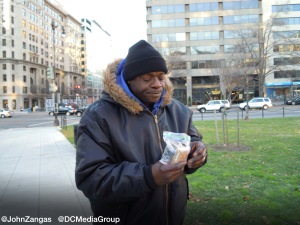
Byron Hawkins, 49, is a stocky man with bearish hands, a gentle spirit but scars from his fiery past. He speaks of his early life with a certain fondness of “easy times.” He went to Pattison Elementary in southwest DC when he was a boy. His favorite subject was math because his family was poor and for him “it was about counting money.” He learned early that accuracy was a necessary for survival. He made it to the tenth grade and was good at almost every sport but dropped out of school before he could graduate.
“Money was easy then so I delivered papers, learned construction, and did whatever I could,” he says. Jobs were plentiful and there was no cause to plan for or be worried about the future. He looks back with regret as the future came faster than he expected.
Homelessness came after seventeen years in prison for a drug conviction he plead to on the “Three-Strikes” law. He was uable to find work after his release because of his record. “All I want is a fair chance,” he says. He feels he paid his debt but doesn’t want to pay it the rest of his life.
He speaks of his most difficult challenge on the street is not living on it but “dealing with fools.” Assaults and fights between the homeless are common as are disputes over choice spots. “I’ve seen more stuff happen here on the streets than the average man.” He speaks of his worst experience in prison and why he knows he’ll never go back. His mother died while he was there and the experience broke his spirit. “They strapped me to a chair in a jacket with my arms pulled around me.” He couldn’t accept that the prison warden would not allow him go to bury his mom, and how hard it was he would never see her again. The prison psychologist sedated him with a shot to calm and put him to sleep. It took seven guards to hold him down. “They kept me there for three days until I broke.” “They didn’t let me out even to go to the bathroom-you s— and p— in this chair until you calm down.” He tells of it as the worst experience of his life. At that point he began to turn his life around in prison, volunteering to work in the kitchen and became the chief cook. “I could prepare a meal for a conference,” he said.
As he spoke of how his mother provided for he and his brothers, how she was always there for him and as he spoke his voice quavered. His deepest regret was not being there for her when she died.
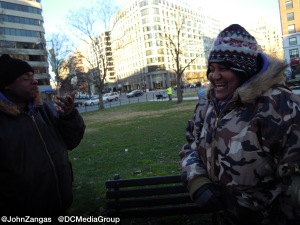
Once he was out of prison he met Devina and found temporary employment for the first time last summer working as a bouncer at a local club. But he soon lost his job when the manager walked past him and saw him sleeping on the street. “He said he had to let me go.” And with that his only source of income was gone. Now he depends on donations and what people give him, and whatever he can do on the side.
Like an oracle, he generously shares wisdom he learned from his mistakes; “Life is too short, Don’t be afraid, drugs are no good,” and “I’ve got God on my side-he keeps me from being the monster I used to be.” He speaks of being able to count on Miriam’s Kitchen for food.
Byron spoke of the difficulties on the street with theft and challenge of getting a good night’s sleep. He and Panama can fend better together as a team protecting each other. “There are too many obstacles to get off the street,” he says. He justifies of his employability, citing his experience, what he lost and what he learned while in prison. “Criminals are not likely to repeat.” But in this economy there are few jobs he can find and fewer which will accept him and little help for him to avoid the pitfalls he faces.
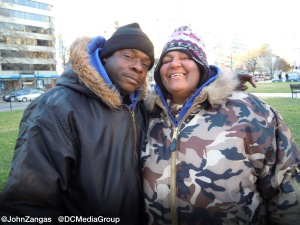
The coffee shop will be closing soon as the night help mops the floor. Soon he’ll be warm in his tent with Panama, listening to their DVD and the morning will come with a new day.
Tonight the DVD plays ‘DJango’ as they chuckle at one of Jamie Fox’s pranks. It is much warmer inside their tent than one could expect. They pile blankets up to the hatch, displaying a new blanket given to them as a gift. It will be their anniversary on February 14 and their home will still be their tent unless they can find a permanent home.


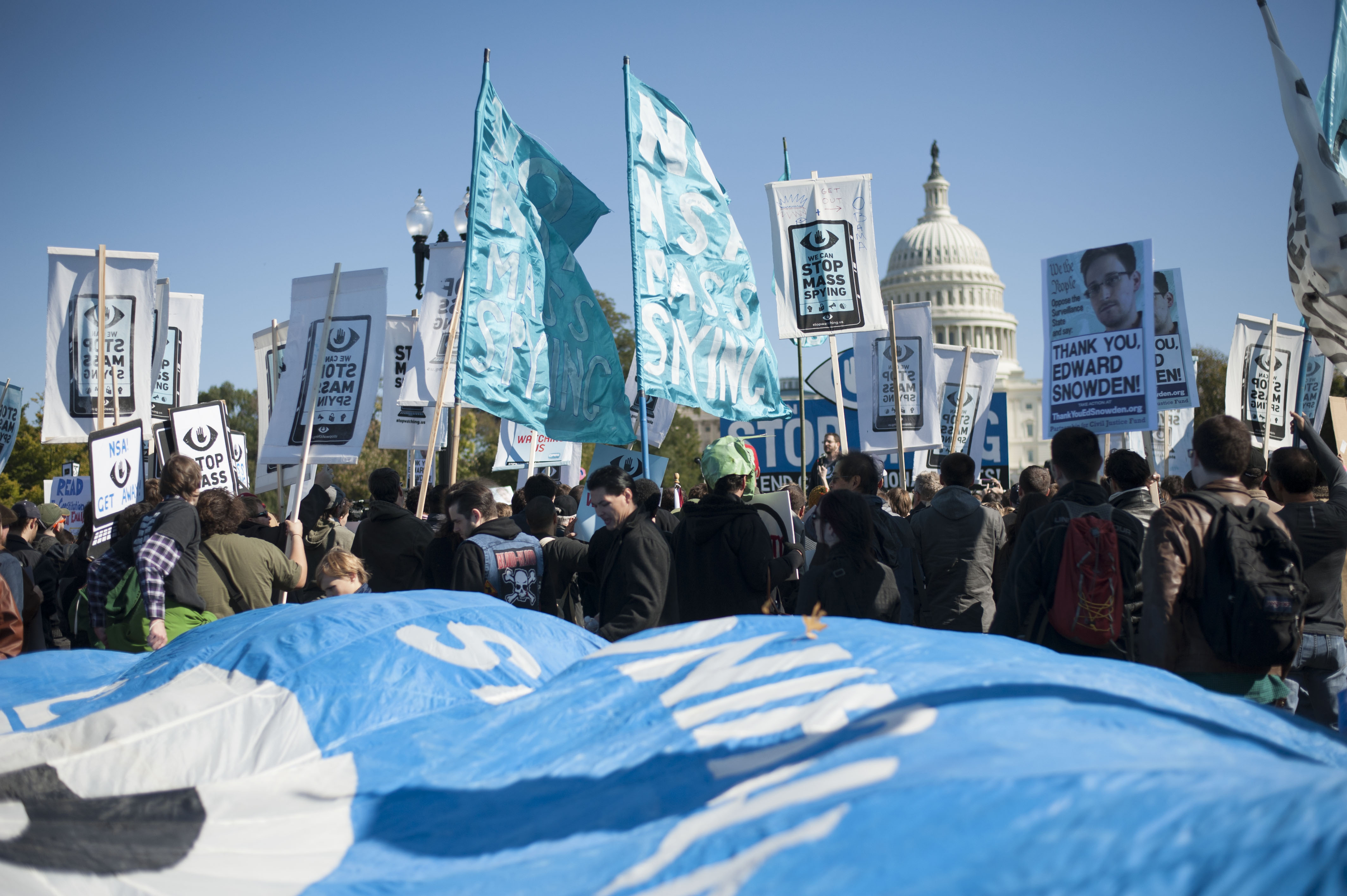
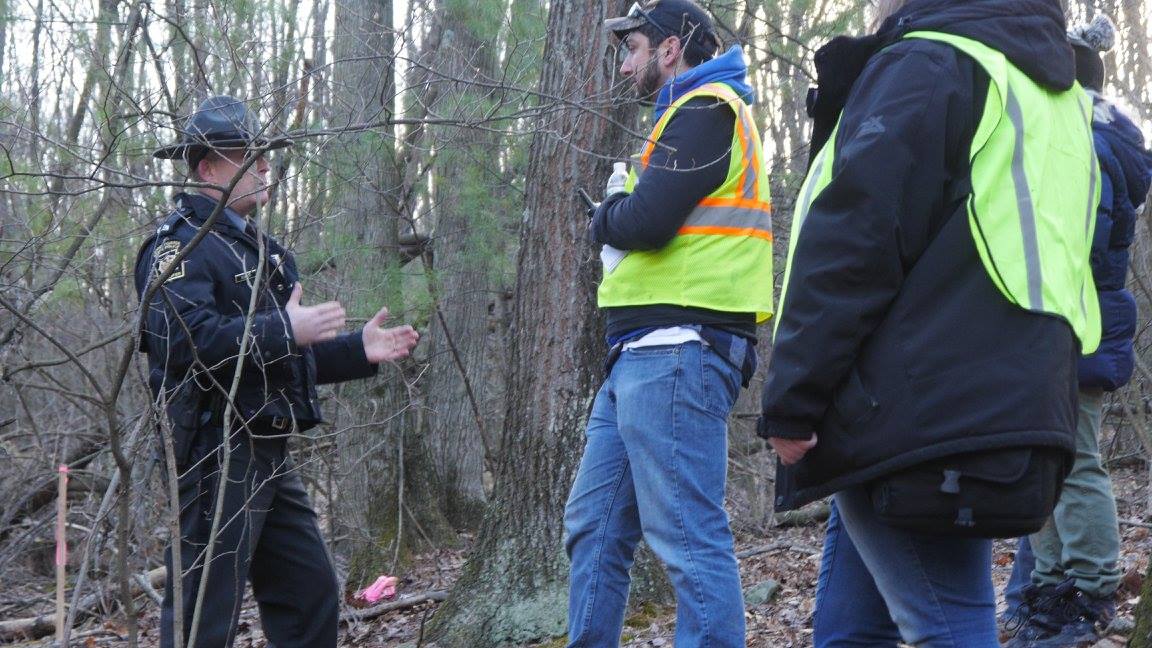
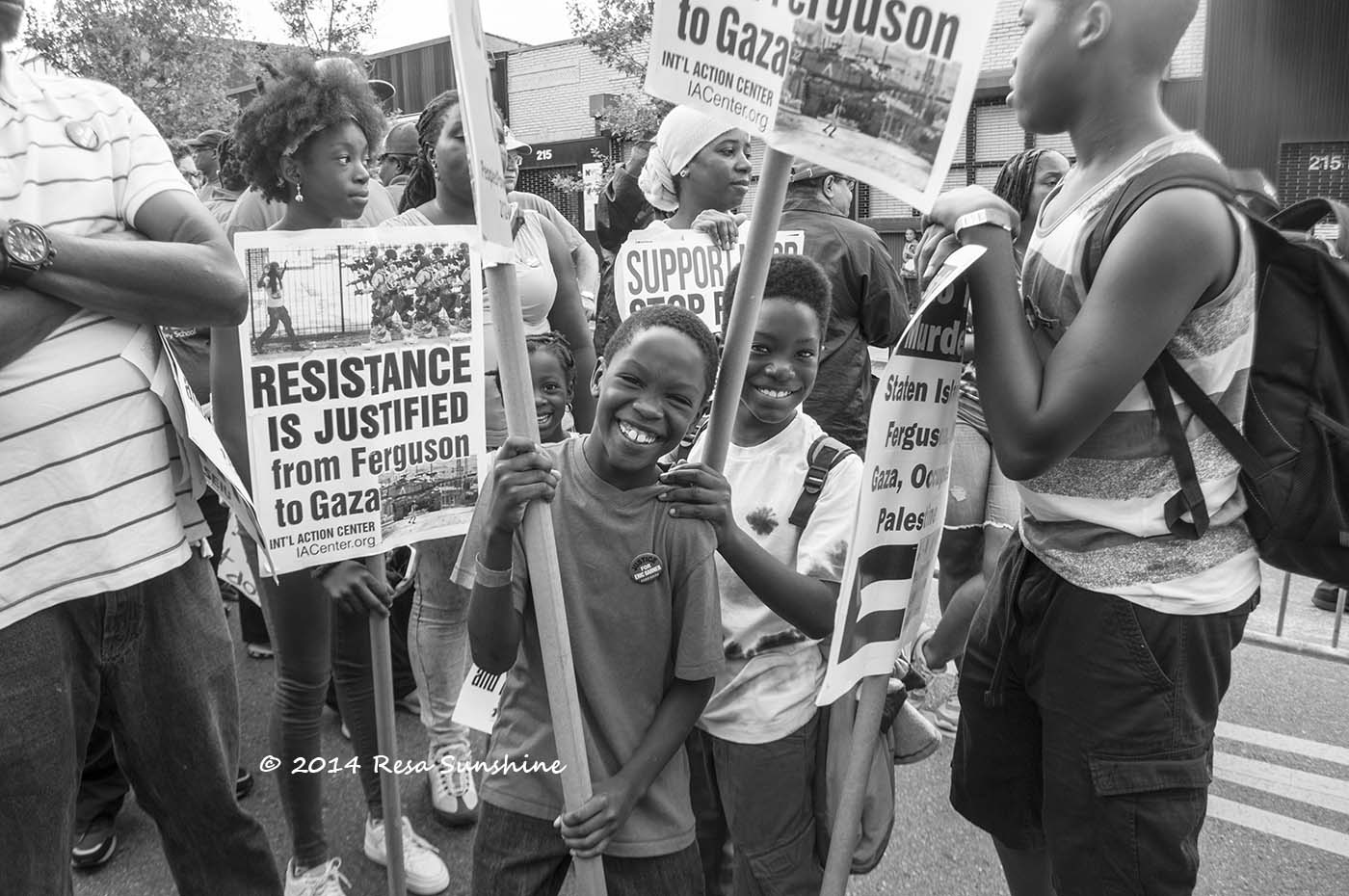

One thought on “Homeless For The Holidays – Byron – Homeless, Able-bodied and Can’t Find Work — Part VI”